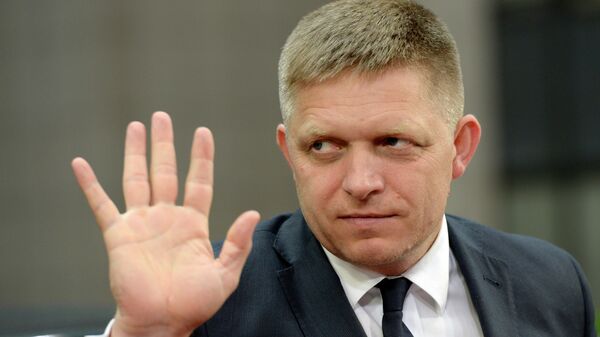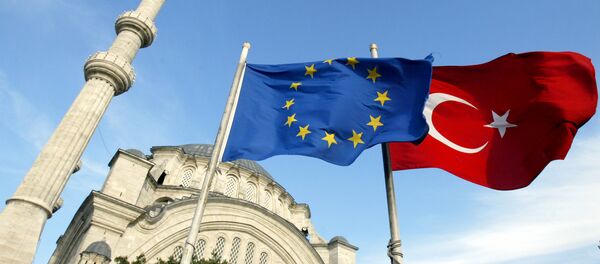Slovakia holds the rotating presidency of the EU at the moment and Fico is skeptical about the powers of Brussels and particularly scathing about the EU sanctions on Russia, which he wants lifted. Ahead of a previous EU simmer to discuss further sanctions against Russia over Crimea, Fico said:
"I consider sanctions meaningless and counterproductive. Until we know what is the impact of the already imposed sanctions, it makes no sense to impose new ones. I reserve a right to veto sanctions harming national interests of Slovakia."
There are growing calls for the powers of the EU — the whole Brussels machine — to be overhauled, particularly in the wake of the Brexit vote. Fico shares the views of many eastern European states that the current immigration impasse and the migrant crisis has shown deep flaws in the EU system.
Slovakia's key priorities for its six-month presidency, according to its website, include building: "Sustainable migration and asylum policies: The current migration crisis is putting enormous pressure on the EU's external borders and on the asylum systems of the Member States."
It is also calling for a "globally engaged Europe" and says it will be actively involved in developing relations with the strategic partners of the EU, which — from the state that was part of Czechoslovakia, within the former Soviet bloc — suggests better relations with Russia.
The timing of the meeting in Moscow is important in that Fico travels to Warsaw the following day (August 26) to meet his other Visegrad Group partners — the Czech Republic, Poland and Hungary — together with German Chancellor Angela Merkel, who is against the lifting of sanctions against Russia.
Zoom in on #BratislavaSummit 16/9. Draft programme https://t.co/BjqqwYdrbh & https://t.co/9ewnU6Eify. Accreditation https://t.co/nx7VRS2OoG
— EU2016SK (@eu2016sk) August 25, 2016
The Visegrad Four (V4) are pressing for a complete rethink of the EU machine, saying in a statement ahead of next month's EU summit in Bratislava, it will "start the necessary political reflection on the EU and its future."
Turkish Conundrum
Turkey will also be high on the agenda, which is an extremely challenging diplomatic conundrum for Fico. Turkish President Recep Tayyip Erdogan met Putin on August 9 in an attempt to warm up relations again, following the downing of a Russian fighter jet by the Turkish air force.
Turkey is a member of NATO (as is Fico's Slovakia), which makes use of a number of Turkish airbases, including Incirlik Air Base, which is strategically important to the US and NATO in the fight against Daesh.
The EU is negotiating a controversial migrant deal with Turkey, under which the EU was due to pay Turkey — initially — US$3.95 billion to bolster its refugee camps and accept "irregular" migrants denied asylum in Greece in return — on a one-for-one basis — for Syrian refugees in Turkey being relocated in the EU.
As part of the deal, the EU was supposed to grant Turkish citizens visa-free access to the EU by the end of July and accelerate its accession to becoming a full member of the EU. However, deal has run into trouble following Erdogan's increasing grip on power, crackdown on opposition parties and the media as well as his suppression of those associated with the failed July coup, which he blames on the US and exiled cleric and activist Fethullah Gülen, who lives in the US and who he wants extradited.
The Putin-Fico meeting will be significant — particularly for any message that Putin gives Fico to bring back to his colleagues in the EU and beyond.



